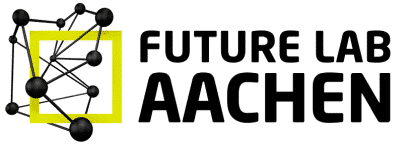RWTH and FH Aachen score Top-Group ratings again in CHE University Ranking!
As in previous years, the renowned CHE University Ranking – commissioned by and published in the German weekly, Die Zeit – has once again placed RWTH Aachen University among the leaders of the field in 2016. Germany’s most comprehensive university ranking is compiled annually by the Centre for Higher Education in Gütersloh as a tool to help prospective students find the right course of study and the right university for them. Factual data is gathered and analysed on academic studies, teaching and equipment – but students’ personal assessments are also taken into consideration. In this year’s ranking, the disciplines Architecture, Biology, Chemistry, Civil Engineering, Electrical Engineering and Information Engineering, English Language and Literature, Environmental Engineering, German Language and Literature, Materials Engineering, Material Sciences and Mechanical Engineering as well as Psychology were re-evaluated. The findings: in comparison with other universities in the German-speaking world, RWTH Aachen scored excellent ratings in research and teaching. In 13 instances, it achieved placements in the Top Group; none of the disciplines examined found themselves placed in the Bottom Group.
RWTH: Very high satisfaction ratings for Mechanical Engineering, of course!
Satisfaction with Mechanical Engineering in Aachen is particularly high. Ratings from the student survey are higher than ever, especially in terms of technical equipment, courses offered and support in studies.
RWTH Aachen also achieved excellent ratings in Chemistry, a discipline in which the assessment criteria (“indicators”) have been completely overhauled over the past few years. For the new indicators – “Teaching of disciplinary competence” and “Teaching of methodological competence” – Aachen’s scientists now score full points. And ratings by students of the subject are extremely positive for the indicators “Study organisation” and “Overall study situation”.
Another finding of the CHE analysis is that a particularly large number of Aachen students successfully reach graduation in an “appropriate” period of time. In fact, in Architecture, Biology and German Language and Literature, they successfully complete their studies faster than at other German universities.
“We’re waiting desperately for the new buildings to be completed.”
The FH Aachen has also achieved a good overall ranking. Aachen’s University of Applied Sciences got particularly high scores in terms of support, courses offered and practical relevance. “This confirms that we are pursuing the right strategy in devoting special attention to the initial phase of studies and increasing the support we provide in that area,” says Prof. Dr. Josef Rosenkranz, Vice-Rector for Academic Affairs. According to him, funding is available for this through Germany’s federal Teaching Quality Pact. And “A Good Academic Start in Engineering” – a joint project offered by FH Aachen and RWTH – will also help to improve support and ensure academic success. But the Vice-Rector also sees the result as an incentive to prioritise quality and continuity even in times of higher student numbers.
On the other hand, the ranking results also clearly highlight just how important an issue the lack of sufficient space at the FH is. “We’re waiting desperately for the new buildings to be completed,” the FH Rector’s Office confirms, “We urgently need additional rooms for teaching and research, and also student workstations.”
The CHE and its Ranking
The Centre for Higher Education, CHE, headquartered in Gütersloh, is a not-for-profit limited company owned by the Bertelsmann Foundation and the German Rectors’ Conference Foundation. Its annual university ranking, commissioned by the German weekly, Die Zeit, assesses universities in the German-speaking world on the basis of a wide range of criteria and places each of them into one of three groups: Top Group, Middle Group and Bottom Group. With more than 300 universities and universities of applied sciences, more than 2,700 faculties, over 10,000 study programmes and over 30 subjects, the CHE University Ranking is – in the words of the publisher – the most comprehensive and detailed ranking in the German-speaking world.



